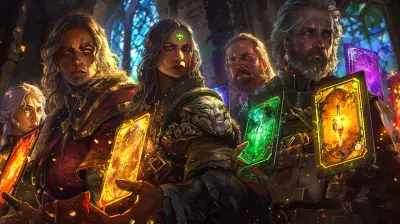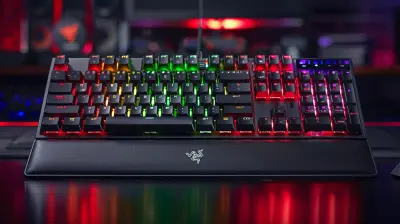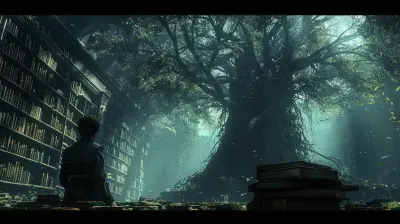Why Elves, Orcs, and Dwarves Dominate Fantasy Game Races
21 June 2025
Let’s be honest—it’s nearly impossible to play a fantasy RPG without bumping into at least one elf, orc, or dwarf. Whether you're slinging spells in a dungeon crawler or managing a fantasy army in a strategy title, these iconic races are always at the center of the action. But have you ever sat back and asked yourself, why these guys? Why not, say, gnomes, ogres, or talking mushrooms?
Well, friend, you’re in luck. Grab your +1 coffee of insight and buckle up—we're diving headfirst into the magical, muddy, and mead-soaked reasons behind the eternal popularity of elves, orcs, and dwarves in fantasy games.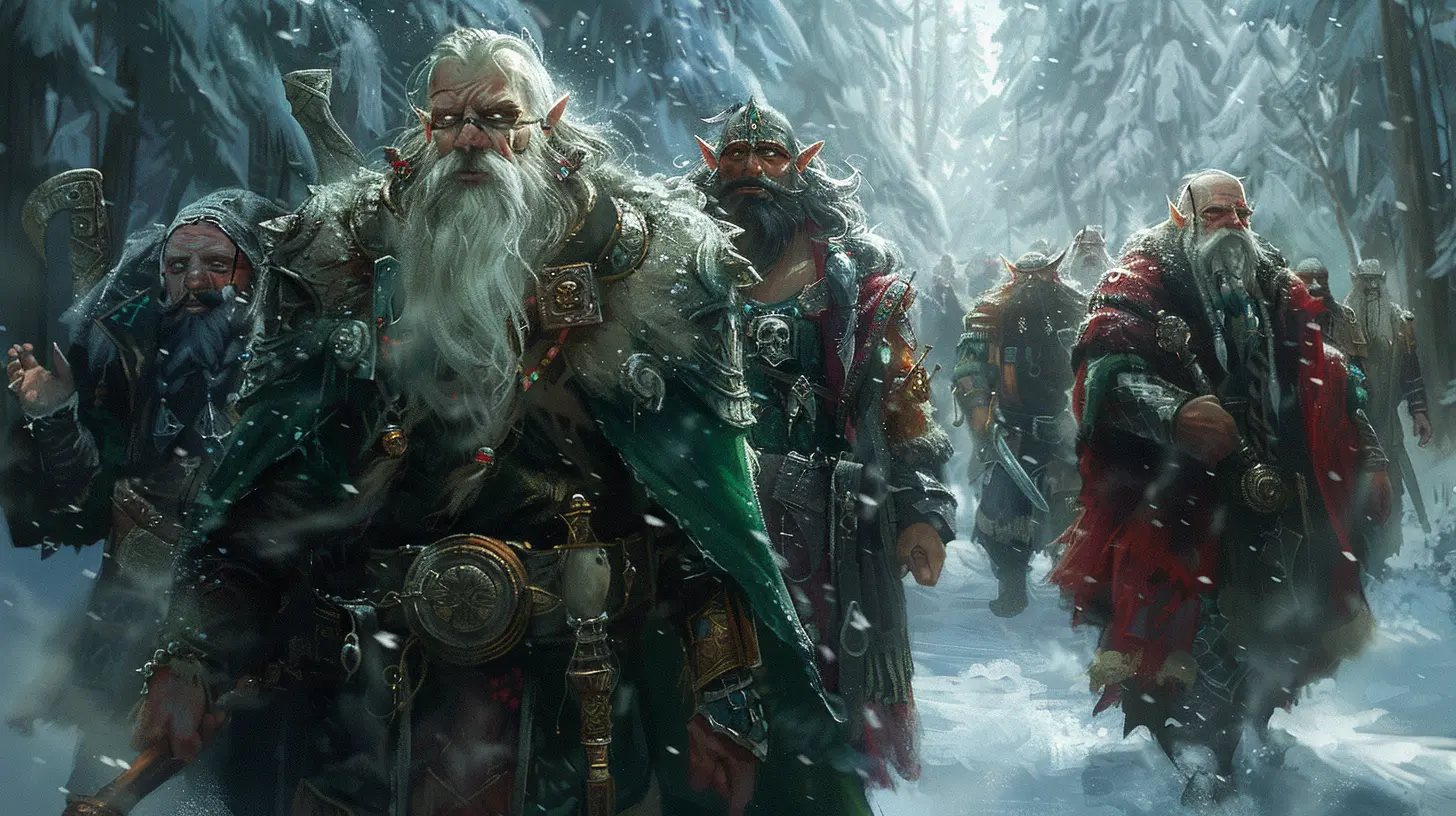
The Fantasy Race Holy Trinity
First things first, let’s meet the big three.- Elves: Graceful, immortal-ish, and straight out of a shampoo commercial. Masters of magic and elegance.
- Orcs: Brutal, strong, and often misunderstood. If rage had muscles and a bellowing battle cry, it’d be an orc.
- Dwarves: Short, stout, proud, and tougher than a day-old baguette. A pickaxe in one hand, a stein in the other.
These three races come bundled with not just physical traits but personality. They’re dripping with flavor right out of the creative oven. And game developers can’t get enough of them.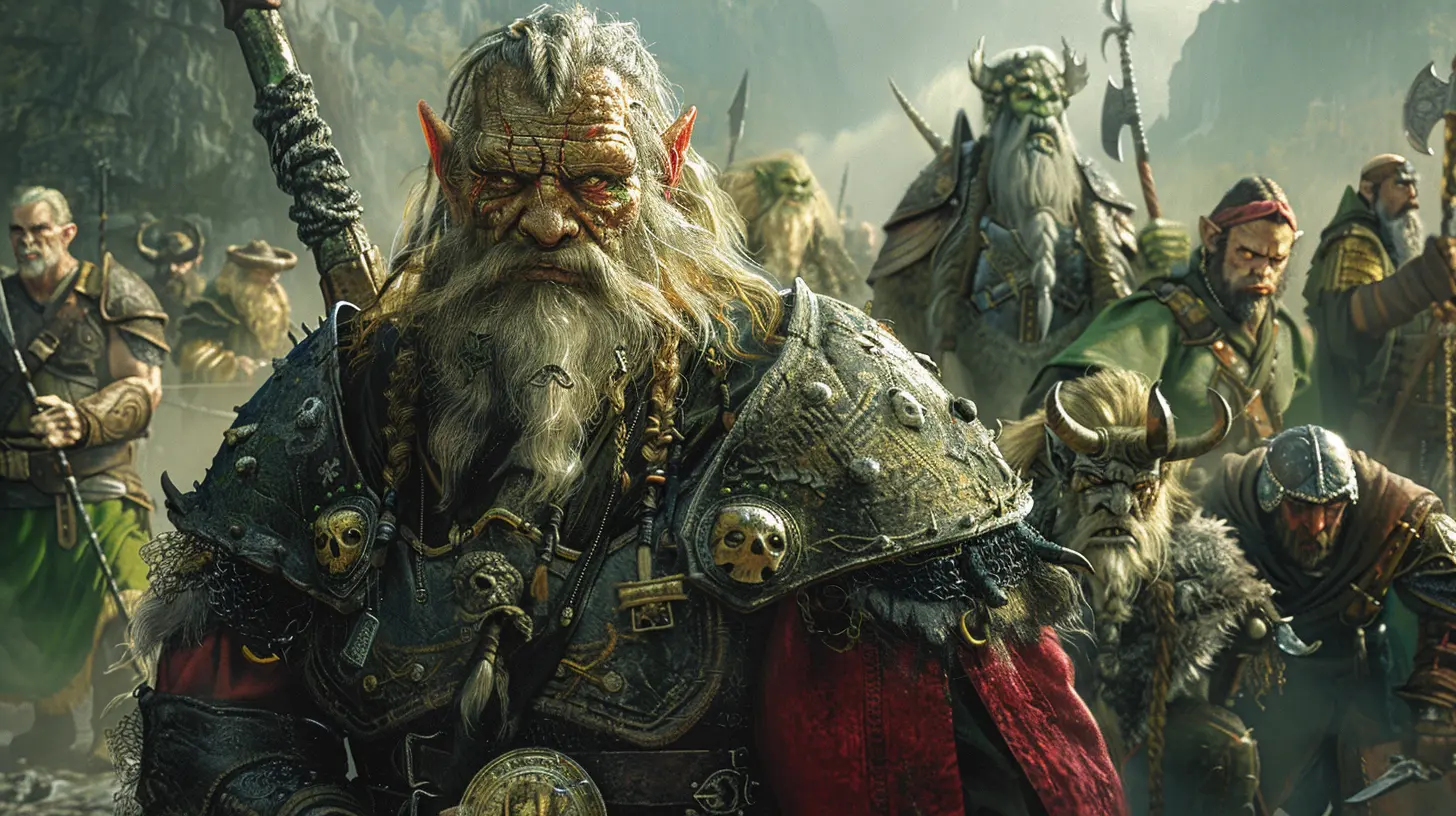
A Tale as Old as Tolkien
Let’s give credit where it’s due—J.R.R. Tolkien practically minted this magical trio in gold. The elves, orcs, and dwarves of The Lord of the Rings shaped modern fantasy like peanut butter shapes a sandwich. Games, especially early tabletop ones like Dungeons & Dragons, borrowed heavily from Tolkien’s blueprint.Ever since, game developers have been running with the ball like an elven quarterback with +10 agility. These races are etched into the very DNA of fantasy gaming.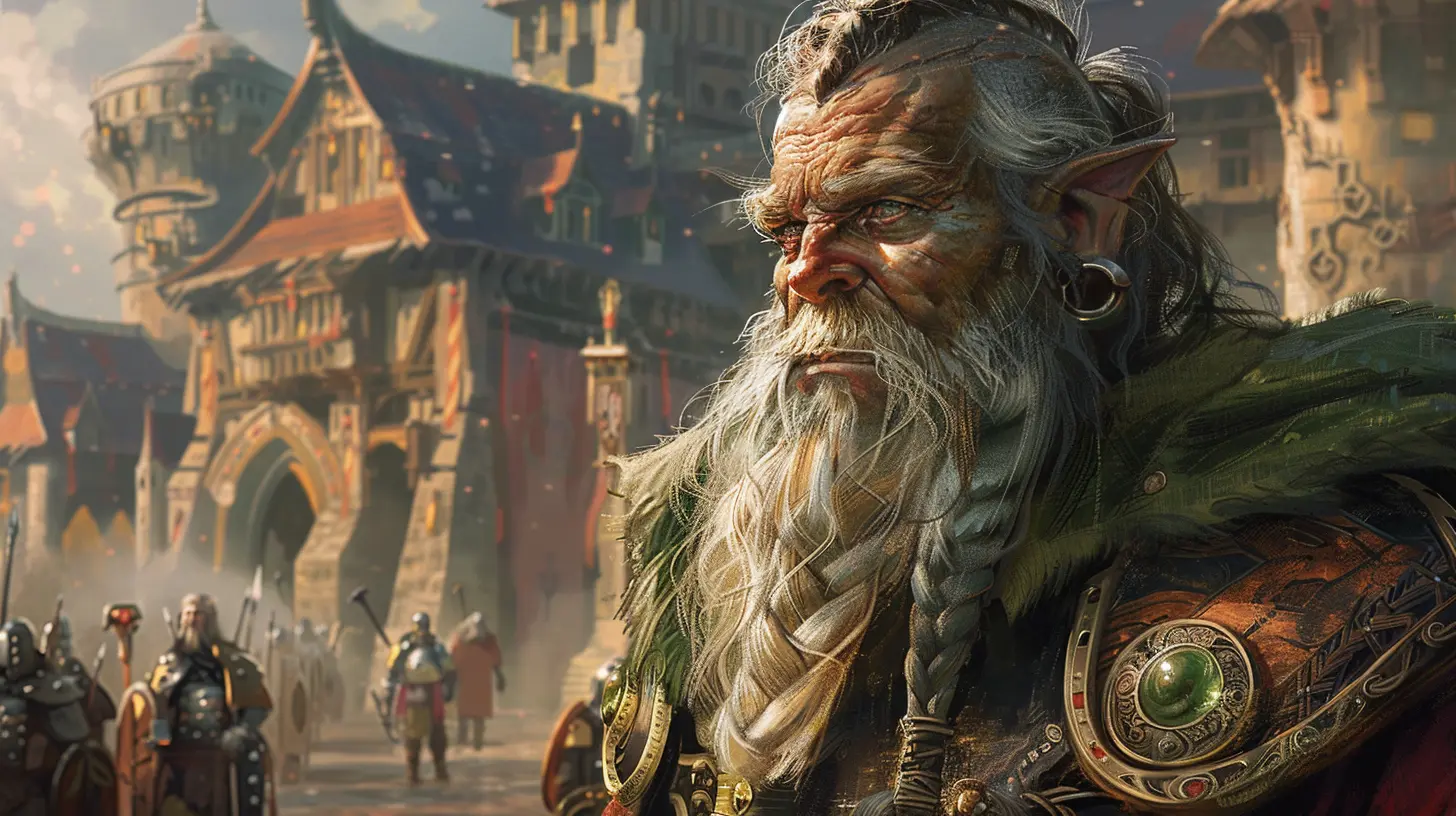
Easy to Understand = Easy to Roleplay
Elves, orcs, and dwarves are plug-and-play. You don’t need a PhD in fantasy lore to grasp what they're all about:- Elves? Noble, aloof, shoot arrows better than Cupid.
- Orcs? Smash first, ask questions... never.
- Dwarves? Build underground kingdoms and grow beards longer than a wizard’s resume.
When you sit down to create a character, you don’t want to spend 3 hours reading a wiki on some obscure jellyfish race. That's where these classic races shine. They're iconic, instantly recognizable, and packed with ready-made roleplaying juice.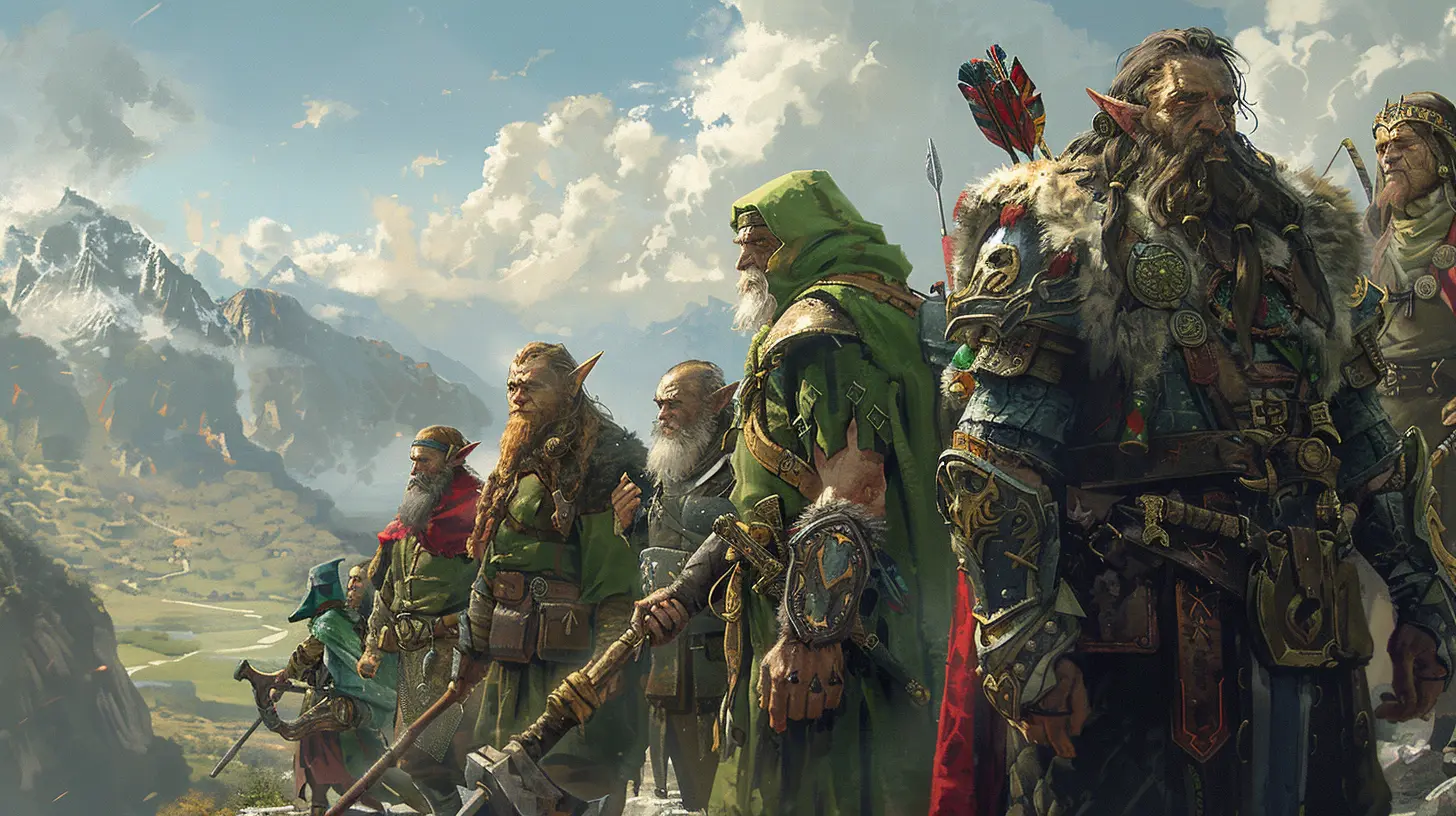
Built-in Conflict = Instant Drama
Let’s face it—games need conflict like dragons need treasure. And guess what? Our fantasy trio comes with centuries of bitter grudges and racial tension baked in.- Elves and dwarves bicker like an old married couple.
- Orcs and everyone else? Usually not on speaking terms unless it involves a battle cry.
- Dwarves are stubborn. Elves are snobby. Orcs are explosive. Boom—juicy drama.
These tensions offer built-in narrative hooks for quests, alliances, betrayals, or just awkward tavern conversations. It’s storytelling gold.
They Fit All the Stereotypes—On Purpose
Yes, stereotypes in fantasy can be a slippery slope. But when done right, they provide a powerful storytelling shorthand. Think of them like the seasoning in your fantasy stew.Each race fills a particular niche:
- Elves = The wise, mystical long-range types. Perfect for archers, mages, and ancient know-it-alls.
- Orcs = Brawlers and bruisers. Ideal for melee combat, berserkers, and tanks.
- Dwarves = Tough-as-nails warriors and engineers. Great for crafting, defense, and glorious beard physics.
This variety helps balance games, both mechanically and narratively. Players instantly know what they're getting into with each race—and that helps keep gameplay smooth and fun.
Cultural Depth That Developers Love
Here's a secret: game developers love lore. And these races come with centuries of ready-made culture, mythos, and aesthetics. Want an elegant, ancient forest city? Elves have you covered. Need an underground fortress forged from stone and attitude? Cue the dwarves. Want to design a brutal war camp smelling like sweat and fury? Orcs to the rescue.The rich cultural vibes of these races give artists, writers, and devs the freedom to go wild with designs, languages, music, and quests. It’s like giving a painter an entire color palette instead of just a pencil.
They’re Surprisingly Flexible
Sure, elves, orcs, and dwarves have their classic roles. But modern games love to shake up the formula.- Ever played a game with a pacifist orc who loves flowers? Hilarious.
- How about a cyberpunk elf with a mohawk and a motorcycle? Yes, please.
- Or a dwarf rogue sneaking instead of smashing? Chef's kiss.
These races are adaptable enough to fit into any genre or subgenre. Fantasy? Obviously. Sci-fi? Surprisingly well. Post-apocalyptic disco steampunk? Honestly, sounds amazing.
Their flexibility ensures they stay relevant even as games evolve past traditional fantasy.
Player Nostalgia Is a Powerful Spell
Whether you played Baldur’s Gate, World of Warcraft, or just a round of Dungeons & Dragons, odds are you bonded with one of these races. Maybe your first character was a grumpy dwarf who drank more ale than he swung his axe. Or perhaps you crushed the competition as a dual-wielding elf ranger with a tragic backstory.These races are wrapped up in our personal gaming history. And that nostalgia? It hits harder than a crit from a warhammer-wielding orc.
Game devs know this. So they keep bringing back our favorite races like surprise visits from old friends.
They Play Well With Others
Multiplayer games thrive on diversity and teamwork. And nothing builds a better adventuring party than mixing elf grace, dwarf grit, and orc muscle.- The elf scouts ahead, spotting danger from a mile away.
- The dwarf handles traps and defends the squishier members.
- The orc? Charges in yelling something heroic (or maybe just yelling).
Together, they make a balanced team with complementary skills and personalities. It’s the fantasy game version of a perfect sitcom trio.
Iconic Visuals That Stick
Let’s not ignore the power of a good look. These races are visually iconic. Even if you muted the game and closed your eyes, you'd know who’s who the second you opened a fantasy art book.- Pointy ears and flowing robes? Elf.
- Green-hued muscles and tusks? Orc.
- Braided beard and big boots? Dwarf.
These visual cues help create strong branding and memorable characters. And in today’s crowded gaming world, that’s a huge advantage.
The RPG Starter Pack
It’s almost a rite of passage. Before you dive into a game full of moon lizards and lava mermaids, you start with elves, orcs, and dwarves. They’re the tutorial levels of fantasy races—familiar, friendly, and fun.They help bring new players into the genre without overwhelming them. Once you’ve mastered the basics by playing a classic race, the weirder stuff (looking at you, sentient fungi) feels way more approachable.
Reinvented, But Never Replaced
Here’s the crazy part. Even after decades of dominating fantasy games, elves, orcs, and dwarves still feel fresh. Each new game reimagines them in clever ways, keeping things exciting.- Dark elves with cursed magic? Yes.
- Noble orcs trying to escape their war-torn past? Double yes.
- Steam-powered dwarves flying around in airships? Count me in.
The core remains the same, but the wrapping paper changes, giving players fresh gifts every time.
Final Thoughts: Comfort Food of Fantasy Gaming
Elves, orcs, and dwarves are the fantasy gaming equivalent of mac & cheese. Sure, you could try something exotic and strange, but sometimes you just want that warm, familiar flavor that never, ever disappoints. They've earned their spot in the pantheon of gaming for good reason—and it’s not because developers are lazy or out of ideas. It’s because these races offer depth, drama, and decades of pure gaming joy.So next time you fire up a new RPG and see those familiar race options, go ahead—click the dwarf. Or the elf. Or even the orc. Because you're not just picking a character.
You're choosing a legend.
all images in this post were generated using AI tools
Category:
Fantasy GamesAuthor:

Stephanie Abbott
Discussion
rate this article
2 comments
Fiona McTigue
Because who doesn’t love tall folk, green skin, and short guys with big axes?
June 22, 2025 at 3:08 PM

Stephanie Abbott
Absolutely! Those unique traits add depth and excitement to fantasy worlds, making them beloved choices for players.
Michelle Chavez
Absolutely loved this article! It’s fascinating how elves, orcs, and dwarves resonate with our imaginations. They embody timeless archetypes—grace, strength, and resilience—that keep us hooked. Plus, their unique cultures offer endless storytelling possibilities. Can’t wait to see how these races evolve in future games! Keep up the great work!
June 22, 2025 at 3:41 AM

Stephanie Abbott
Thank you so much! I’m glad you enjoyed the article. I agree—these archetypes truly enrich our storytelling and gaming experiences. Exciting times ahead for fantasy races!
